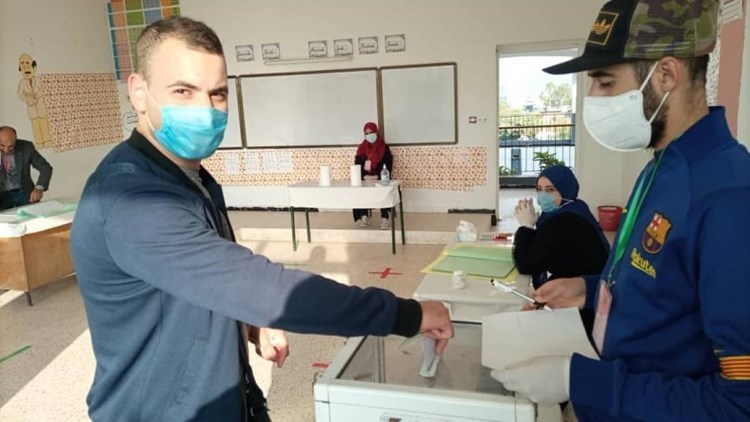Algeria Legislative Elections voting continues
The voting process in the early legislative elections is ongoing in the various Algerian governorates.
-

Voting began in 34 mobile offices distributed in different regions in Algeria.
The voting process in the early legislative elections in Algeria continues at the level of mobile offices, in conjunction with the voting process for citizens overseas, through the various Algerian consular representations in the world.
Legislative polls: Over 23.5 million voters to choose Lower House MPs on Saturday
— ALGÉRIE PRESSE SERVICE | وكالة الأنباء الجزائرية (@APS_Algerie) June 10, 2021
↪ https://t.co/vWGrXDHQ7f pic.twitter.com/aKPCdVpzLF
The convoys of mobile offices are accompanied by observers from candidate representatives, as well as state delegation representatives to the Independent National Electoral Authority, with the various logistical means necessary to conduct the polls and to ensure that these offices reach the most remote areas where voters are located.
Voting began in 34 mobile offices distributed over the various isolated and border regions in the states of Ouargla, Tindouf, Tamanrasset, Illizi, Djanet, and Ain Gezam, to enable about 33,890 voters registered in the electoral lists to properly perform their electoral duty.
Voting for the international Algerian community continues through the various Algerian consulates around the world.
The electoral campaign began on May 20 and lasted for 20 days, taking place within the controls set by the law relating to the electoral system, which states, in Article 73, that “except for the case stipulated in Article 95 of the Constitution, the electoral campaign is open before 23 days from the date of the poll, and ends 3 days before it."
In the last two days before the electoral silence, Algerian political party leaders confirmed that the widespread fraud in previous electoral cycles prevented Algerians from electing a representative and legitimate parliament that reflects most political and ideological waves.
It is noteworthy that the elections, in which 1,483 lists participated, including 646 party lists and 837 independent candidates' lists, are witnessing a fundamental change in the electoral process by adopting a new election process represented by the proportional open list voting method.

 2 Min Read
2 Min Read








